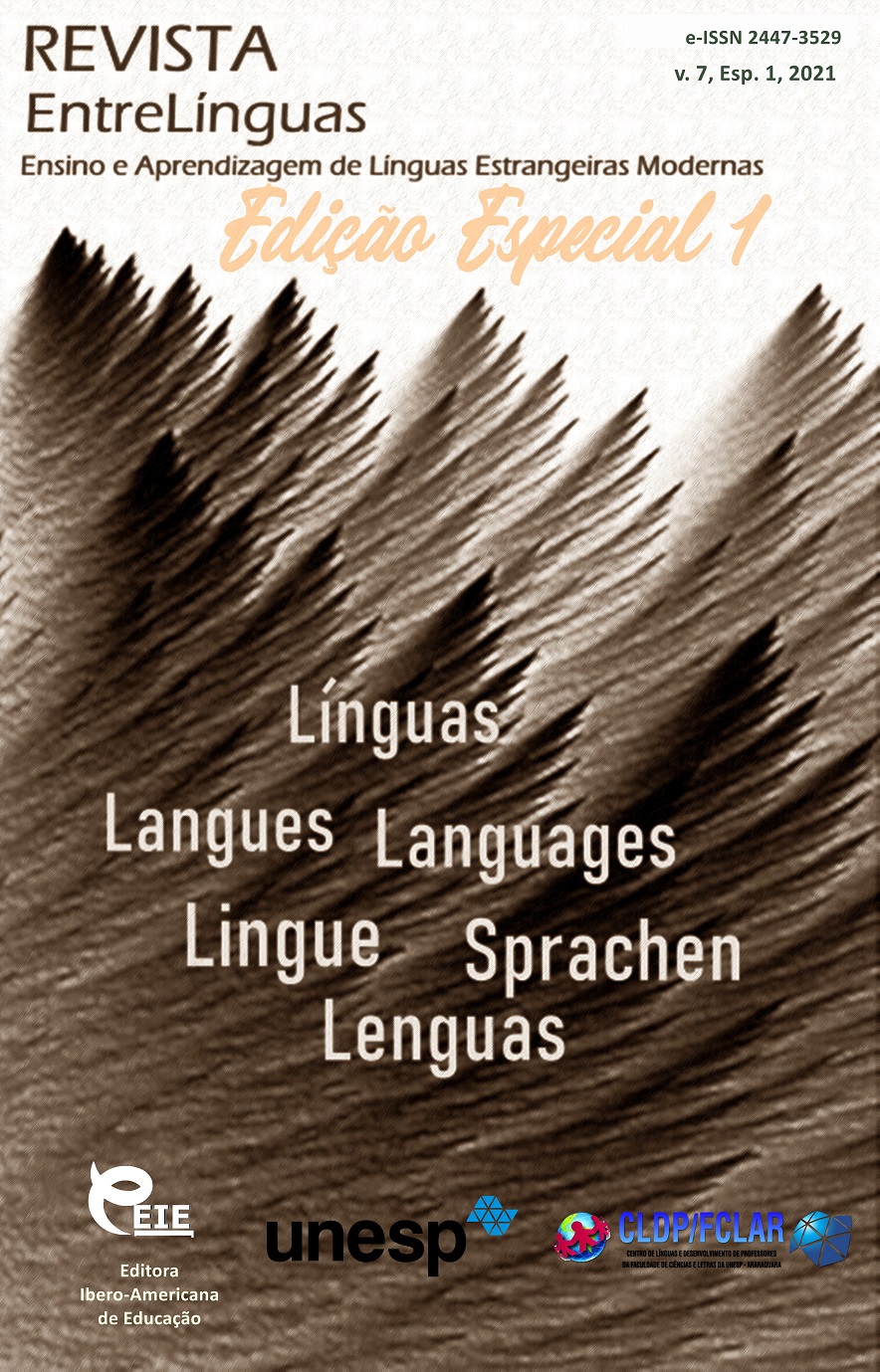Text-based approach to writing development at Russian as a second language lessons
DOI:
https://doi.org/10.29051/el.v7iEsp1.14888Keywords:
Writing, Russian as second language, Teaching, Sample text, StudentsAbstract
The article is devoted to the usage of educational texts in writing skills development during Russian as a second language learning process. It is especially relevant for those who are taking higher education programs in Russia and in Russian. It discusses the main problems arising in working with various genres of written texts presented in modern textbooks on writing. Particular attention is paid to differences in work with reproductive and productive types of writing texts, as well as genres that are included in Test of Russian as a Foreign Language (TORFL). Various methods were used, such as comparative, analytical, descriptive and others. All the methods used allowed us to identify the distinctive features of sample texts offered in modern writing materials. An analysis of students' papers performed during the lessons, allowed us to draw a conclusion about the causes of errors. The article substantiates the possibility of including into the educational process a new genre of written texts - SMS messages. The relevance of this idea is explained by the existing trend of using electronic communication, as well as the wide distribution among students of various messenger applications, such as WhatsApp and others.
Downloads
References
AGEEVA, J. V. Business etiquette in job interview. Russian Linguistic Bulletin, v. 2, n. 2, p. 21-23, 2015.
GALEEV, T. I.; HABIBULINA, E. V. Frequency of Verbal Forms and Language Standard. Journal of History Culture and Art Research, v. 6, n. 5, p. 90-98, 2017.
KIKVIDZE, I. D. Activation of text functions in foreign language learning process. Didactic philology, v. 2, n. 6, p. 30-33. 2017.
KLEMENTSOVA, N. N. Text in foreign language teaching. MGIMO Review of International Relation, n. 5, p. 204-209, 2012.
NOSONOVICH, E. V. Criteria for the content authenticity of the study text. Foreign languages in school, n. 2, p. 10, 1999.
Novikova, I. V. The role of text in foreign language teaching. MRSU Herald, n. 3, p. 201-203, 2008.
SYCHYOVA, L. V. The problem of teaching writing to foreign students. Actual Issues of Modern Philology and Journalism, n. 7, p. 46-50, 2011.
TURSUNOVNA, Z. Z. Developing writing skills in teaching foreign languages. Вопросы науки и образования, v. 4, n. 49, 2019.
VARLAMOVA, M. Y.; BOCHINA, T. G.; MIFTAKHOVA, A. N. Interactivity in teaching a foreign language. J. Lang. Lit, v. 7, n. 3, p. 190-194, 2016.
YERBULATOVA, I. K.; GILAZETDINOVA, G. K.; BOZBAYEVA, A. G. Peculiarities of Kazakh Reality Translation with Cultural-Historical Educational Components. International Journal of Higher Education, v. 8, n. 8, p. 51-54, 2019.
Downloads
Published
How to Cite
Issue
Section
License

This work is licensed under a Creative Commons Attribution-NonCommercial-ShareAlike 4.0 International License.
Os manuscritos aceitos e publicados são de propriedade da Revista EntreLínguas. Os artigos publicados e as referências citadas na Revista EntreLínguas são de inteira responsabilidade de seus autores.
Transferência de direitos autorais – autorização para publicação
Caso o artigo submetido seja aprovado para publicação, já fica acordado que o(s) autor(es) autoriza(m) a UNESP a reproduzi-lo e publicá-lo na EntreLínguas, entendendo-se os termos “reprodução” e “publicação” conforme definição respectivamente dos incisos VI e I do artigo 5° da Lei 9610/98. O artigo poderá ser acessado pela rede mundial de computadores (Internet), sendo permitidas, a título gratuito, a consulta e a reprodução de exemplar do artigo para uso próprio de quem a consulta, desde que haja a citação ao texto consultado. Essa autorização de publicação 328 EntreLínguas, Araraquara, v. 1, n .2, p. 323-328, jul./dez. 2015 não tem limitação de tempo, ficando a UNESP responsável pela manutenção da identificação do(s) autor(es) do artigo. Os artigos publicados e as referências citadas na Revista EntreLínguas são de inteira responsabilidade de seus autores.











